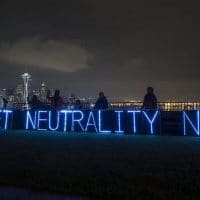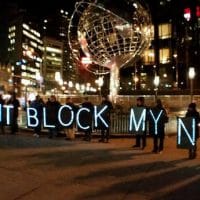-
Facebook’s Troll Hunter in Chief Nathaniel Gleicher tied to Neocon think tank
While Facebook claims impartiality in its crackdown on “coordinated inauthentic behavior,” the loyalties of the man charged with carrying out that mission. if his resume is any indication, are not with the users.
-
Twitter erupts after 2,000 Pro-Venezuelan accounts are deleted
A total of 1,196 social media accounts based in Venezuela have been closed accused of “influencing domestic audiences.”
-
Dating brokers: the dating industry surrounding dating profiles
In May 2017 artist Joana Moll, alongside Tactical Tech, purchased 1 million online dating profiles for 136€ from U.S.Date, a supposedly U.S.-based company that trades in dating profiles from all over the globe.
-
Amazon’s accent recognition technology could tell the government where you’re from
AT THE BEGINNING of October, Amazon was quietly issued a patent that would allow its virtual assistant Alexa to decipher a user’s physical characteristics and emotional state based on their voice. Characteristics, or “voice features,” like language accent, ethnic origin, emotion, gender, age, and background noise would be immediately extracted and tagged to the user’s data file to help deliver more targeted advertising.
-
Did fake news win the Brazilian election?
Bolsonaro’s rise to power came with a welter of misinformation, rumour and lies. What role did ‘fake news’ play in the far right leader’s victory?
-
Fighting and winning against U.S. psychological cyber warfare
Proceed with caution: the CIA, NSA, FBI and DOD are your ‘friends’ on Facebook, writes Lauren Smith.
-
Gender, Labor, & Law with Emma Caterine
In this episode, we speak with Emma Caterine (@emmacaterineDSA), a law graduate and writer with more than a decade of experience working within economic justice, feminist, LGBTQ, and racial justice movements. We talk Democratic Socialists of America, MMT, the advantages of a federal jobs guarantee over a universal basic income, the place for sex work in a jobs guarantee program.
-
What is behind Facebook deleting teleSUR English’s page?
Suddenly without warning, between 4 and 5 pm on Monday, August 13th, the Facebook page of teleSUR English was unpublished for the second time this year.
-
A NATO-funded team is advising Facebook on flagging ‘propaganda’
Last week, the company said it took down 32 suspicious pages and accounts that purported to be run by leftists and minority activists. While some U.S. officials said they were likely the work of Russian agents, Facebook said it did not know for sure.
-
Venezuelanalysis: official statement on facebook’s removal of our page
Venezuelanalysis is the only independent English language website covering news and analysis on Venezuela from a progressive perspective & which platforms leftist grassroots voices. It is run by committed journalists, authors and academics & praised by renowned journalists and intellectuals such as Noam Chomsky, John Pilger, Marta Harnecker and Oliver Stone.
-
UK police to arrest Julian Assange
Britain is doing Washington’s dirty work and given the heavily increased ‘political chatter’ on Assange’s fate–it is quite likely the British government is looking for public reaction to be muted enough to simply arrest him, go through the motions and send Assange to certain solitary confinement on death row.
-
Outcome of Assange case could undermine the rights of millions
If Australia reneges on its obligations to protect Assange and fight for his rights, the implications such actions would hold for every other citizen of the country are as vast as they are chilling.
-
How the United States ‘hacked’ Russia’s elections in the 1990s
In a recent interview that went viral, Russian President Vladimir Putin repudiated NBC journalist Megyn Kelly, when she pressed him on the so-called “Russiagate” scandal.
-
Google and corporate news giants forge alliance to defeat independent journalism
The “new media” monopolists of Silicon Valley and the once-dominant traditional print media have clearly agreed that the “fake news” frenzy is a convenient pretext to step up their censorship of the internet through new algorithms, allowing them to boost their profit margins and silence opposition through a new framework of “algorithmic censorship.”
-
An open letter to our community on congress’s vote to extend NSA spying from EFF executive director Cindy Cohn
Today, the United States Congress struck a significant blow against the basic human right to read, write, learn, and associate free of government’s prying eyes.
-
Amazon is a 21st-century digital chain gang
When Amazon announced plans to locate a $5 billion, 50,000-employee complex as its second headquarters somewhere in North America, state governments and municipalities fell over themselves offering billions of dollars in tax abatements and corporate subsidies to secure the prize.
-
Facebook and Google outline unprecedented mass censorship at U.S. Senate hearing
Behind the backs of the U.S. and world populations, social media companies have built up a massive censorship apparatus staffed by an army of “content reviewers” capable of seamlessly monitoring, tracking, and blocking millions of pieces of content.
-
Is casual surveillance the future of capitalism?
When e-commerce monolith Amazon introduced the Key in October, it was the latest in a series of innovations aimed at making our lives more user-friendly. Available exclusively to subscribers of Amazon Prime, the Key system—which consists of a programmable smart lock for the front door of one’s house, and a high-definition camera mounted nearby to record the activity of those who come and go—allowed users to have “Amazon packages securely delivered just inside your front door,” as opposed to having those purchases left on a front porch or in a mailroom.
-
Net neutrality and the socialist moment
In recent months, one of the United States’ most important debates has revolved around the broad concept of Net Neutrality (NN). Without delving into the technicalities, the concept of NN is that internet service providers (ISPs) cannot privilege or restrict internet data. Basically, once you’ve purchased your internet package with the requisite bandwidth parameters, your ISP cannot make your access to a certain site easier or harder, faster or slower.
-
Net neutrality repeal is only part of Trump’s surrender to corporate media
The FCC is under attack—and so too is the First Amendment. As the primary regulator of how media and information gets to our nation’s citizens, the Federal Communications Commission has a critical role to play in protecting the open Internet, free speech, and free press in our democracy.



![[New Release] Dating Brokers - the dating industry surrounding dating profiles](https://mronline.org/wp-content/uploads/2018/12/New-Release-Dating-Brokers-the-dating-industry-surrounding-dating-profiles-200x200.jpg)
















